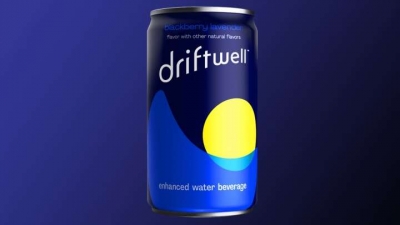News And PoliticsArts And EducationCommunications And EntertainmentHealth And LifestyleSports And FitnessLawRelationship And MarriageMotivationalsVehicles And MobilityOthersFood And KitchenBusiness And MoneyScience And TechnologyReligion And PrinciplesStories And PoemsUSMLE And MedicalsFamily And Holidays
profile/2277IMG_20200116_052733_5.jpg
Fidelity

Hypercalcemia And Fertility.
~4.8 mins read
Hypercalcemia and fertility
Mrs. S. E. is a 39-year-old lady who visited the Medical Art Center, Ikeja, on infertility. Her doctor wanted her to see an endocrinologist and seek treatment for her high level of serum calcium. After going through inquiries and investigations at the centre, she decided to solve her two fronts. First, get prepared for the IVF-ET at Medical ART Center, and then proceed to the Mart life Detox Clinic, the first modern Mayr medicine clinic in Africa. At the Mayr Clinic, she went through a battery of assessments and detoxification, involving heavy metal and calcium mobilisation.
She was also able to lose about 5.6kg from her initial weight of 82kg. At the end of a 10-day therapy at Mart life Clinic, she embarked on the second part of her treatment at the IVF center. It consisted of ovarian stimulation, egg retrieval, fertilisation with ICSI, and embryo transfer. After 14 days, a blood test confirmed she was pregnant. Mission accomplished. The next stage would be to monitor her during the antenatal period because of her high serum calcium.
Calcium is perhaps the most important mineral in the human body. There is more calcium in the body than any other mineral, and it is the most closely monitored element in the body. Not only does it help to ensure healthy bones and teeth, but it also plays a significant role in crucial body processes such as heart function, nerve conduction, blood clotting, and muscle function. The human body cannot function properly without calcium.
Most people are aware that bone in the diet (such as bone from fish, beef, or even bone cartilage popularly referred to as biscuit bone) is a good calcium source. Other sources include dairy products such as milk, yoghurt, and cheese, vegetables like okra and cabbage, nuts like almonds, soy products like tofu and soymilk, and fortified foods like cereals and bread. Calcium is undoubtedly central to normal body functions, but what happens when this vital mineral becomes excessive in the bloodstream?
Most of the body’s calcium is in the bones as calcium phosphate. A small percentage is in the cells and extracellular fluids. 45 per cent of the blood calcium exists in the active form as free or ionised calcium, while another 45 per cent is bound to proteins. The other 10 per cent is bound to anions to form essential chemicals that the body uses for other purposes. Most adults need about 1000mg of calcium per day. Women who are 50 years or older (and everyone above 70 years) require up to 1200mg of calcium daily.
The parathyroid glands
The parathyroid glands are four small glands, each typically no bigger than a rice grain, located in the neck just behind the thyroid gland. The only job of the parathyroid glands is to regulate the amount of calcium in the blood. That a mineral has specific glands dedicated to its control alone underscores the importance of calcium in the body. The parathyroid glands’ job is to keep serum calcium level within the narrow range of eight to10mg/dl (2-2.5mMol/L), although exact reference ranges may differ among laboratories. When calcium levels drop below average, the parathyroid glands secret the parathyroid hormone (PTH). This hormone helps to mobilise calcium from the bones, increase absorption from the intestines, and facilitate the kidneys’ re-absorption of calcium. All these processes raise the blood level of calcium until it is normal again, at which point the parathyroid glands stop secreting PTH.
Role of Vitamin D
Vitamin D is very central to body calcium metabolism. Its primary function here is to work in synch with the parathyroid hormone to ensure calcium levels stay up in the blood. Vitamin D does this by helping the body absorb calcium and phosphorus from the intestines. It also helps the reabsorption of calcium from the kidneys. Secondly, vitamin D also ensures that calcium is mobilisation from the calcium store in the bones. It is called bone resorption. Prolonged bone resorption can cause weakening of bones and teeth, leading to joint pain and worsening osteoporosis.
Causes of hypercalcemia
Excessive calcium or hypercalcemia occurs when the total calcium level in the blood exceeds 10.4mg/dl or when free or ionised calcium exceeds 5.2mg/dl. The most common cause of hypercalcemia in primary hyperparathyroidism.
Some studies have found a correlation between increased PTH levels and Polycystic Ovary Syndrome ( Panidis et al. , 2005 ) and a BMI-independent positive correlation between PTH and testosterone. When calcium and Vitamin D intake increase, the level of PTH drops. It has been suggested to improve PCOS-associated hyperandrogenemia and anovulation. Administration of high doses of vitamin D has also alleviated PCOS-associated signs of hyperandrogenism in other reports (Thys-Jacobs et al. , 1999 ). It may suggest that increased PTH from hyperparathyroidism leading to Hypercalcemia may have specific adverse effects on fertility.
Treatment of hypercalcemia
Surgery: Most cases of Hypercalcemia result from an overproduction of PTH by 1 or 2 malfunctioning parathyroid glands (Primary Hyperparathyroidism), or by a benign tumor of the gland. The treatment for this is surgical and involves the removal of the offending gland.
Wait and Watch: For other causes of Hypercalcemia, a wait and watch, the doctor might adopt an approach depending on patient presentation and symptoms. Such patients regularly monitor serum calcium levels and monitor the heart, kidney, and CNS functions.
Medication: Some cases are amenable to remedies. Drugs used to vary and depend on a thorough review by the doctor.
What can you do?
At Mart-Life Detox Clinic, Maryland, the approach to the management of non-surgical causes of Hypercalcemia incorporates the tenets of Mayr Medicine. It encourages dietary changes, appropriate use of orthomolecular supplements, and complementary medical protocols for lowering blood calcium levels. Here, during a customized Mayr program, patients are encouraged to:
Drink plenty of fluids. Drink enough fluids, mostly water, to produce nearly clear urine to lessen kidney stones’ risk. Six to eight glasses (about two to three liters) of water daily.
Exercise regularly. Regular exercise, including strength training, helps maintain healthy bones. Daily 30 minutes exercise regimen is encouraged five times a week.
Avoid cigarette smoking. Smoking may increase bone loss as well as increase the risk of other serious health problems. It is best to quit the habit immediately.
Avoid calcium-raising drugs. Certain medications, including some diuretics and lithium, can raise calcium levels. A review of medications is necessary to find suitable alternatives.
Avoid processed/refined food: Eliminate potential food allergens and refined foods, including preservatives, food additives, table sugar, white bread, pasta, etc.
Reduce or eliminate trans-fatty acids: found in commercially baked goods, such as cookies, crackers, cakes, donuts, French fries, onion rings, processed foods, and margarine.
Limit carbonated beverages: They are high in phosphates, which can leach calcium from the bones.
profile/2277IMG_20200116_052733_5.jpg
Fidelity

PepsiCO Launches Drink To Aid Sleep As Consumers Struggles With Stress.
~2.3 mins read

PepsiCo's latest drink, Driftwell
Source: PepsiCo
Doctors and dentists are reporting more cases of cracked teeth and insomnia as the coronavirus pandemic takes a toll on the nation's stress levels.
PepsiCo's latest drink Driftwell is pitching itself as a way to combat the problem.
Pepsi employees came up with an idea for a beverage to help consumers de-stress and relax before bed as part of an internal competition started last year by CEO Ramon Laguarta. The concept won, and the food and beverage giant went to work to make it a reality. Emily Silver, vice president of innovation and capabilities at Pepsi's North American beverages unit, said it is the fastest new product to ever come out of the company. Driftwell will be available nationwide on e-commerce sites in December and in grocery stores by the first quarter of 2021.
"I think we're launching this at a time when there's more consumer interest than there previously was, given everything that's going on from a macro perspective," Silver said.
The enhanced water drink contains 200 miligrams of L-theanine, an amino acid that's found in green and black teas and some mushrooms. A few studies have suggested that the ingredient can improve sleep quality and can help reduce the physical symptoms of stress.
"From a scientific and regulatory perspective, we feel really good about making that claim around L-theanine. Specifically, we have safety in clinical data to prove that it works," Silver said.
Driftwell also contains 10% of the recommended daily value of magnesium. The drink comes in 7.5-ounce mini cans and just one flavor: blackberry lavender. According to Silver, it's the perfect size for hydrating before bedtime without requiring another trip to the bathroom.
Functional water beverages were a $2.97 billion market last year in the U.S., according to data from Euromonitor International, which forecasts that their popularity will boost sales nearly 5% this year. Relaxation drinks are a much smaller category, although their popularity in Japan suggests they could become a part of Americans' everyday routines.
"It's a nascent category, and it's one frankly that we think we can build from a [liquid refreshment beverage] perspective," Silver said.
Smaller companies are making their own relaxation drinks by adding CBD to sparkling water and touting them as a sleep aid or a way to unwind, although little research has been done to back up those claims. Those companies are doing this despite the Food and Drug Administration prohibiting adding the cannabis compound to food and drinks, and large corporations like Pepsi have avoided any potential regulatory snafus by sidestepping the ingredient for now.
Shares of Pepsi, which has a market value of $189 billion, are flat so far this year, as of Monday's close.
Advertisement

Link socials
Matches
Loading...
